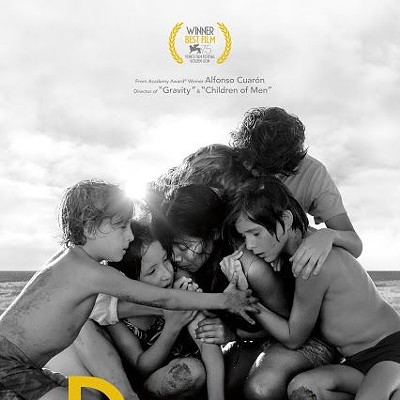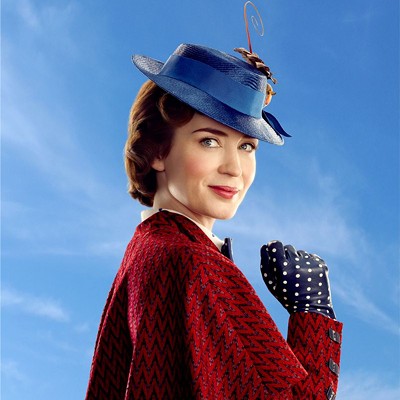Now Showing
[
{
"name": "Air - MedRect Combo - Inline Content 1",
"component": "14680855",
"insertPoint": "7",
"requiredCountToDisplay": "5",
"parentWrapperClass": "fdn-ads-inline-content-block"
},{
"name": "Air - MedRect Combo - Inline Content 2",
"component": "14680856",
"insertPoint": "15",
"requiredCountToDisplay": "9",
"parentWrapperClass": "fdn-ads-inline-content-block"
},{
"name": "Air - SVP - Leaderboard - Inline Content - 2",
"component": "16852291",
"insertPoint": "10",
"requiredCountToDisplay": "10",
"parentWrapperClass": "fdn-ads-inline-content-block"
},{
"name": "Air - SVP - Leaderboard - Inline Content - 3",
"component": "16852292",
"insertPoint": "20",
"requiredCountToDisplay": "18",
"parentWrapperClass": "fdn-ads-inline-content-block"
},{
"name": "Air - SVP - Leaderboard - Inline Content - 1",
"component": "16852290",
"insertPoint": "25",
"requiredCountToDisplay": "22",
"parentWrapperClass": "fdn-ads-inline-content-block"
}
]
CAPOTE PPP
Anyone heading into Capote expecting an exhaustive expose on the literary lion and social raconteur might be disappointed to learn that this film focuses exclusively on the period when he researched and wrote his nonfiction masterpiece In Cold Blood. In a way, it is an odd choice for a film: Almost everything you need to know about this incident -- and, therefore, Capote's viewpoint -- can be found in Richard Brooks' superb 1967 screen version of In Cold Blood. But the selling point in Capote is the excellent lead performance by Philip Seymour Hoffman, that character actor extraordinaire who has contributed finely etched portrayals to such films as The Talented Mr. Ripley and Magnolia. Constantly punctuating the air with his whispery wit and entertaining other people as if to the diva manner born, Hoffman's Capote is an odd figure against the barren backdrop of the Kansas flatlands, where he has come to learn about the brutal murders of a respected family of four. Accompanied by his friend Harper Lee (Catherine Keener), whose own book is about to make her a celebrity in her own right (a running gag is that nobody can recall the name of her upcoming novel, just that it has something to do with killing birds), Capote gets to know some of the locals and, eventually, the two drifters found responsible for the repugnant killings. He forms a bond with one of them, a pensive type named Perry Smith (Clifton Collins Jr.), with whom he feels he shares outsider status. But as time passes and Capote keeps needling Perry for specific details on the murders (an absolute requirement for the completion of his book), it becomes unclear -- perhaps even to Capote himself -- whether the author is merely using Perry for his own purposes or whether the doomed convict has indeed stirred Capote's own humanity. It's at this point when Hoffman's portrayal truly mesmerizes, as the fey façade slips long enough to reveal an ordinary man both shaken and stirred by the finality of a nonfiction world.
LAST HOLIDAY PP1/2
A remake of a 1950 British comedy starring Alec Guinness, Last Holiday is better than expected thanks to its retooling as a vehicle for Queen Latifah. Latifah stars as Georgia Byrd, a working class woman who, upon learning that shell die in three weeks, cashes in all her assets and heads off to the Grandhotel Pupp (located in the Czech Republic) with the intent of winding down her life in luxury. While at the hotel, she befriends the cook (Gerard Depardieu -- how Ive missed him!), offers sage advice to assorted individuals (among them Giancarlo Espositos silky Senator and Alicia Witts kept woman), and butts heads with her former boss, the hardhearted CEO of a national retail chain (Timothy Hutton). Meanwhile, her love interest (LL Cool J) back home discovers her dark secret and hightails it to be by her side.
BROKEBACK MOUNTAIN PPP1/2
The secret behind Brokeback Mountain is that, behind its convenient (and infuriating) designation as the gay cowboy movie, this is as universal as any love story Hollywood has produced in recent times. The story begins in 1963 Wyoming, when two young cowboys -- reserved Ennis Del Mar (Heath Ledger) and the more outgoing Jack Twist (Jake Gyllenhaal) -- are hired by a gruff rancher (Randy Quaid) to tend to a flock of sheep up on Brokeback Mountain. One night, when its too cold to sleep alone, the pair huddle up together inside their small tent; before long, Jack is forcefully kissing Ennis and, to his own surprise, Ennis responds in an equally aggressive manner. The men separate, each going on to pursue a more traditional lifestyle. For Ennis, that means marrying his longtime sweetheart, Alma (Michelle Williams), and producing some kids. For Jack, that means trying his hand once again on the rodeo circuit, where he eventually meets his future wife, Lureen (Anne Hathaway). As Jack, Gyllenhaal delivers a nicely modulated performance thats by turns silly and sullen. The weakness in his work -- that he doesnt completely disappear into his character -- is only noticeable because his co-star is operating at such a stratospheric level. Ledger, in short, is phenomenal as Ennis, the sort of pensive individual whos so reluctant to speak that it appears as if uttering a syllable is as strenuous for him as lifting a refrigerator is to the rest of us.
HOODWINKED P1/2
Clearly aping the Shrek films, this attempts to put a spin on the classic childrens fairy tales by adding all manner of so-called hip references and grownup-geared plot maneuverings, approaches that grow more stale with each passing year. Hoodwinked is basically Little Red Riding Hood by way of Rashomon, as amphibious Detective Nicky Flippers (voiced by David Ogden Stiers) hears variations on the saga from four different participants: Red (Anne Hathaway), Granny (Glenn Close), the Wolf (Patrick Warburton) and the Woodsman (Jim Belushi).
MUNICH PPP
Munich is a strong film, an important work, and already a lightning rod for controversy and (one hopes) healthy debate. But another instant Spielberg classic? Not quite. With a script drafted by heavy-hitters Tony Kushner (Angels In America) and Eric Roth (Forrest Gump), Munich is largely a fictionalization of the events that transpired after that tragic day at the 1972 Olympics in Germany, when a group of Palestinian terrorists known as Black September slaughtered the Israeli athletes they were holding as hostages. The movie reveals that, in an effort to exhibit their toughness to the world, the Israeli government sent a select band of assassins to eliminate everyone who was responsible for the Munich massacre. Spielberg and his writers bring to vivid life this motley crew of enforcers: Avner (Eric Bana), the sensitive leader of the group; the fiery getaway driver Steve (Daniel Craig, aka the new James Bond); the meticulous "clean up" man Carl (Ciaran Hinds); the jittery bomb maker Robert (Mathieu Kassovitz); and the pensive forger Hans (Hanns Zischler).Spielberg's muddying of the moral waters is already drawing heat (primarily from Jewish leaders), but it's to his credit as a filmmaker of consequence that he asks the hard questions and doesn't flinch from any unsettling truths that might emerge.
THE RINGER P 1/2
In need of quick cash, a struggling office worker named Steve (Johnny Knoxville) is persuaded by his sleazy uncle (Brian Cox) to pretend to be a mentally challenged athlete named Jeffy so he can enter the Special Olympics and come away the big winner. The movie may sound outrageous and offensive, but truthfully, navel-scratching slobs won't enjoy this any more than navel-gazing snobs once they catch a whiff of its overwhelming timidity. Because the filmmakers respect the plight of the mentally handicapped (indeed, the movie's executive producer is Tim Shriver, Chairman of the Special Olympics), they go out of their way to avoid anything that might be construed as demeaning.
MEMOIRS OF A GEISHA PP1/2
Director Rob Marshalls adaptation of the Arthur Golden novel plays like a Disney version of a Zhang Yimou movie, though the end result isnt as dreadful as that designation might suggest. As movie artifice, its above average, but it goes no deeper than that. Two Crouching Tiger, Hidden Dragon alumni handle the key roles: Ziyi Zhang plays Chiyo, the penniless foster child who grows up to become the legendary geisha known as Sayuri, while Michelle Yeoh essays the role of her mentor, Mameha. The Last Samurais Oscar nominee Ken Watanabe has the principal male role as the Chairman, the older man who catches Sayuris eye at an early age.
FUN WITH DICK AND JANE PP1/2
The 1977 original employs Jane Fonda and George Segal in a lumbering yarn about a well-to-do couple who turn to crime once the husband loses his job. Jim Carrey and Tea Leoni play the new Dick and Jane, who find themselves in a similar predicament once the CEO (Alec Baldwin) of Dicks company bails out, leaving thousands of employees without jobs, pensions or benefits. After working a series of low-paying odd jobs (the pictures funniest sequences), the couple eventually turn to robbing local shops with a squirt gun, earning enough dough to engage in even more elaborate heists.
THE PRODUCERS PPP
Mel Brooks commercial failure but cult success was resurrected by the comic legend himself as a Broadway musical, one so successful that it earned a record 12 Tony Awards to go along with its enormous box office booty. That a movie version would follow is no surprise; whats startling is how the picture plays as little more than a static filming of the stage play. In the Gene Wilder role of the timid accountant Leo Bloom, Matthew Broderick strains too hard to be funny. Nathan Lane is a riot in the Zero Mostel role of Max Bialystock, the struggling producer who determines that a show called Springtime for Hitler is his ticket to riches.
RUMOR HAS IT PP
Sarah Huttinger (Jennifer Aniston) learns through a series of events that the best-selling novel The Graduate was based on the experiences of her own family. Over 30 years ago, both her mother (now deceased) and grandmother (Shirley MacLaine) had slept with Beau Burroughs (Kevin Costner), who in more recent times has become a billionaire. She maneuvers to meet him in person, only to find that, like her mom and grandma before her, she cant resist his roguish charm. The hook turns out to be the most entertaining aspect of the film, as Sarah strives to learn exactly how all the pieces of the Graduate puzzle fit together.
KING KONG PPP1/2
Peter Jacksons new Kong will make a fortune, and it saddens me that it will be viewed by scores of people who wont even give the original 1933 take a passing glance because they lack the imagination to immerse themselves in the world of vintage black-and-white cinema. But thats their loss, and certainly not Jacksons fault. Hes done his part by treating the property with love and respect, and, much to my surprise, his Kong is a -- pardon the pun -- roaring success. The first portion of the film details how visionary filmmaker Carl Denham (Jack Black) elects to head out into uncharted waters to make his epic adventure movie, recruiting a struggling actress named Ann Darrow (Naomi Watts) to serve as his leading lady. Denham is all business, meaning that Anns romantic escapades arrive in the form of Jack Driscoll (Adrien Brody), a sensitive screenwriter. The second part charts the sea voyage and the arrival on Skull Island, whereupon Ann is co-opted by the local natives for the purpose of serving as a human sacrifice to the great ape known as Kong. The climactic third act finds Kong captured and taken to New York, where, billed as King Kong, The Eighth Wonder of the World, he becomes the featured attraction in Denhams lavish theatrical production.
THE CHRONICLES OF NARNIA: THE LION, THE WITCH AND THE WARDROBE PPP
C.S. Lewis' source material -- the first book in a series of seven Narnia adventures -- sprinkled Christian allegories throughout a fantasy yarn that was aimed primarily at children, and the movie steadfastly respects Lewis' intentions. Like the best kid flicks, this one never talks down to its target audience, and its religious themes -- issues involving honor, forgiveness and redemption -- embody the true spirit of Christianity and in effect serve as an antidote to the sadistic theatrics of Mel Gibson's garish snuff film, The Passion of the Christ. Lewis and The Lord of the Rings author J.R.R. Tolkien were friends and contemporaries, so it's not surprising that the films based on their respective works often resemble each other in style and structure. In fact, I'd wager that it took the massive success of the LOTR flicks for Narnia to even be given the green light. Therefore, it's easy to see the plucky Pevensie children -- Peter (William Moseley), Susan (Anna Popplewell), Edmund (Skandar Keynes) and little Lucy (Georgie Henley) -- as human Hobbits, bravely entering enemy territory to defeat an evil entity whose cruel reign threatens all sorts of races and civilizations. It's not hard to spot a bit of Aragorn and Sauron in the noble lion king Aslan and the nefarious White Witch (Tilda Swinton), one sworn to protect the land and the other determined to rule it. In short, viewers who enjoyed the LOTR threepeat should find similar compensations in this less ambitious undertaking.
WALK THE LINE PPP
Walk the Line positions itself as a love story, one that finds Cash locating his soulmate in country star June Carter. A vivacious firecracker who takes her time in committing to this troubled individual, June has her own demons to tame, most notably attempting to reconcile her two divorces with her strict upbringing. Just as Ray lived or died on the performance of Jamie Foxx, so too does Walk the Line depend on the mesmerizing work by Joaquin Phoenix and Reese Witherspoon (who both do their own singing). Phoenix commands the screen, yet even he's topped by Witherspoon in her most fully realized performance since Election. Phoenix may provide the movie with its voice, but it's Witherspoon who delivers its soul.
Anyone heading into Capote expecting an exhaustive expose on the literary lion and social raconteur might be disappointed to learn that this film focuses exclusively on the period when he researched and wrote his nonfiction masterpiece In Cold Blood. In a way, it is an odd choice for a film: Almost everything you need to know about this incident -- and, therefore, Capote's viewpoint -- can be found in Richard Brooks' superb 1967 screen version of In Cold Blood. But the selling point in Capote is the excellent lead performance by Philip Seymour Hoffman, that character actor extraordinaire who has contributed finely etched portrayals to such films as The Talented Mr. Ripley and Magnolia. Constantly punctuating the air with his whispery wit and entertaining other people as if to the diva manner born, Hoffman's Capote is an odd figure against the barren backdrop of the Kansas flatlands, where he has come to learn about the brutal murders of a respected family of four. Accompanied by his friend Harper Lee (Catherine Keener), whose own book is about to make her a celebrity in her own right (a running gag is that nobody can recall the name of her upcoming novel, just that it has something to do with killing birds), Capote gets to know some of the locals and, eventually, the two drifters found responsible for the repugnant killings. He forms a bond with one of them, a pensive type named Perry Smith (Clifton Collins Jr.), with whom he feels he shares outsider status. But as time passes and Capote keeps needling Perry for specific details on the murders (an absolute requirement for the completion of his book), it becomes unclear -- perhaps even to Capote himself -- whether the author is merely using Perry for his own purposes or whether the doomed convict has indeed stirred Capote's own humanity. It's at this point when Hoffman's portrayal truly mesmerizes, as the fey façade slips long enough to reveal an ordinary man both shaken and stirred by the finality of a nonfiction world.
LAST HOLIDAY PP1/2
A remake of a 1950 British comedy starring Alec Guinness, Last Holiday is better than expected thanks to its retooling as a vehicle for Queen Latifah. Latifah stars as Georgia Byrd, a working class woman who, upon learning that shell die in three weeks, cashes in all her assets and heads off to the Grandhotel Pupp (located in the Czech Republic) with the intent of winding down her life in luxury. While at the hotel, she befriends the cook (Gerard Depardieu -- how Ive missed him!), offers sage advice to assorted individuals (among them Giancarlo Espositos silky Senator and Alicia Witts kept woman), and butts heads with her former boss, the hardhearted CEO of a national retail chain (Timothy Hutton). Meanwhile, her love interest (LL Cool J) back home discovers her dark secret and hightails it to be by her side.
BROKEBACK MOUNTAIN PPP1/2
The secret behind Brokeback Mountain is that, behind its convenient (and infuriating) designation as the gay cowboy movie, this is as universal as any love story Hollywood has produced in recent times. The story begins in 1963 Wyoming, when two young cowboys -- reserved Ennis Del Mar (Heath Ledger) and the more outgoing Jack Twist (Jake Gyllenhaal) -- are hired by a gruff rancher (Randy Quaid) to tend to a flock of sheep up on Brokeback Mountain. One night, when its too cold to sleep alone, the pair huddle up together inside their small tent; before long, Jack is forcefully kissing Ennis and, to his own surprise, Ennis responds in an equally aggressive manner. The men separate, each going on to pursue a more traditional lifestyle. For Ennis, that means marrying his longtime sweetheart, Alma (Michelle Williams), and producing some kids. For Jack, that means trying his hand once again on the rodeo circuit, where he eventually meets his future wife, Lureen (Anne Hathaway). As Jack, Gyllenhaal delivers a nicely modulated performance thats by turns silly and sullen. The weakness in his work -- that he doesnt completely disappear into his character -- is only noticeable because his co-star is operating at such a stratospheric level. Ledger, in short, is phenomenal as Ennis, the sort of pensive individual whos so reluctant to speak that it appears as if uttering a syllable is as strenuous for him as lifting a refrigerator is to the rest of us.
HOODWINKED P1/2
Clearly aping the Shrek films, this attempts to put a spin on the classic childrens fairy tales by adding all manner of so-called hip references and grownup-geared plot maneuverings, approaches that grow more stale with each passing year. Hoodwinked is basically Little Red Riding Hood by way of Rashomon, as amphibious Detective Nicky Flippers (voiced by David Ogden Stiers) hears variations on the saga from four different participants: Red (Anne Hathaway), Granny (Glenn Close), the Wolf (Patrick Warburton) and the Woodsman (Jim Belushi).
MUNICH PPP
Munich is a strong film, an important work, and already a lightning rod for controversy and (one hopes) healthy debate. But another instant Spielberg classic? Not quite. With a script drafted by heavy-hitters Tony Kushner (Angels In America) and Eric Roth (Forrest Gump), Munich is largely a fictionalization of the events that transpired after that tragic day at the 1972 Olympics in Germany, when a group of Palestinian terrorists known as Black September slaughtered the Israeli athletes they were holding as hostages. The movie reveals that, in an effort to exhibit their toughness to the world, the Israeli government sent a select band of assassins to eliminate everyone who was responsible for the Munich massacre. Spielberg and his writers bring to vivid life this motley crew of enforcers: Avner (Eric Bana), the sensitive leader of the group; the fiery getaway driver Steve (Daniel Craig, aka the new James Bond); the meticulous "clean up" man Carl (Ciaran Hinds); the jittery bomb maker Robert (Mathieu Kassovitz); and the pensive forger Hans (Hanns Zischler).Spielberg's muddying of the moral waters is already drawing heat (primarily from Jewish leaders), but it's to his credit as a filmmaker of consequence that he asks the hard questions and doesn't flinch from any unsettling truths that might emerge.
THE RINGER P 1/2
In need of quick cash, a struggling office worker named Steve (Johnny Knoxville) is persuaded by his sleazy uncle (Brian Cox) to pretend to be a mentally challenged athlete named Jeffy so he can enter the Special Olympics and come away the big winner. The movie may sound outrageous and offensive, but truthfully, navel-scratching slobs won't enjoy this any more than navel-gazing snobs once they catch a whiff of its overwhelming timidity. Because the filmmakers respect the plight of the mentally handicapped (indeed, the movie's executive producer is Tim Shriver, Chairman of the Special Olympics), they go out of their way to avoid anything that might be construed as demeaning.
MEMOIRS OF A GEISHA PP1/2
Director Rob Marshalls adaptation of the Arthur Golden novel plays like a Disney version of a Zhang Yimou movie, though the end result isnt as dreadful as that designation might suggest. As movie artifice, its above average, but it goes no deeper than that. Two Crouching Tiger, Hidden Dragon alumni handle the key roles: Ziyi Zhang plays Chiyo, the penniless foster child who grows up to become the legendary geisha known as Sayuri, while Michelle Yeoh essays the role of her mentor, Mameha. The Last Samurais Oscar nominee Ken Watanabe has the principal male role as the Chairman, the older man who catches Sayuris eye at an early age.
FUN WITH DICK AND JANE PP1/2
The 1977 original employs Jane Fonda and George Segal in a lumbering yarn about a well-to-do couple who turn to crime once the husband loses his job. Jim Carrey and Tea Leoni play the new Dick and Jane, who find themselves in a similar predicament once the CEO (Alec Baldwin) of Dicks company bails out, leaving thousands of employees without jobs, pensions or benefits. After working a series of low-paying odd jobs (the pictures funniest sequences), the couple eventually turn to robbing local shops with a squirt gun, earning enough dough to engage in even more elaborate heists.
THE PRODUCERS PPP
Mel Brooks commercial failure but cult success was resurrected by the comic legend himself as a Broadway musical, one so successful that it earned a record 12 Tony Awards to go along with its enormous box office booty. That a movie version would follow is no surprise; whats startling is how the picture plays as little more than a static filming of the stage play. In the Gene Wilder role of the timid accountant Leo Bloom, Matthew Broderick strains too hard to be funny. Nathan Lane is a riot in the Zero Mostel role of Max Bialystock, the struggling producer who determines that a show called Springtime for Hitler is his ticket to riches.
RUMOR HAS IT PP
Sarah Huttinger (Jennifer Aniston) learns through a series of events that the best-selling novel The Graduate was based on the experiences of her own family. Over 30 years ago, both her mother (now deceased) and grandmother (Shirley MacLaine) had slept with Beau Burroughs (Kevin Costner), who in more recent times has become a billionaire. She maneuvers to meet him in person, only to find that, like her mom and grandma before her, she cant resist his roguish charm. The hook turns out to be the most entertaining aspect of the film, as Sarah strives to learn exactly how all the pieces of the Graduate puzzle fit together.
KING KONG PPP1/2
Peter Jacksons new Kong will make a fortune, and it saddens me that it will be viewed by scores of people who wont even give the original 1933 take a passing glance because they lack the imagination to immerse themselves in the world of vintage black-and-white cinema. But thats their loss, and certainly not Jacksons fault. Hes done his part by treating the property with love and respect, and, much to my surprise, his Kong is a -- pardon the pun -- roaring success. The first portion of the film details how visionary filmmaker Carl Denham (Jack Black) elects to head out into uncharted waters to make his epic adventure movie, recruiting a struggling actress named Ann Darrow (Naomi Watts) to serve as his leading lady. Denham is all business, meaning that Anns romantic escapades arrive in the form of Jack Driscoll (Adrien Brody), a sensitive screenwriter. The second part charts the sea voyage and the arrival on Skull Island, whereupon Ann is co-opted by the local natives for the purpose of serving as a human sacrifice to the great ape known as Kong. The climactic third act finds Kong captured and taken to New York, where, billed as King Kong, The Eighth Wonder of the World, he becomes the featured attraction in Denhams lavish theatrical production.
THE CHRONICLES OF NARNIA: THE LION, THE WITCH AND THE WARDROBE PPP
C.S. Lewis' source material -- the first book in a series of seven Narnia adventures -- sprinkled Christian allegories throughout a fantasy yarn that was aimed primarily at children, and the movie steadfastly respects Lewis' intentions. Like the best kid flicks, this one never talks down to its target audience, and its religious themes -- issues involving honor, forgiveness and redemption -- embody the true spirit of Christianity and in effect serve as an antidote to the sadistic theatrics of Mel Gibson's garish snuff film, The Passion of the Christ. Lewis and The Lord of the Rings author J.R.R. Tolkien were friends and contemporaries, so it's not surprising that the films based on their respective works often resemble each other in style and structure. In fact, I'd wager that it took the massive success of the LOTR flicks for Narnia to even be given the green light. Therefore, it's easy to see the plucky Pevensie children -- Peter (William Moseley), Susan (Anna Popplewell), Edmund (Skandar Keynes) and little Lucy (Georgie Henley) -- as human Hobbits, bravely entering enemy territory to defeat an evil entity whose cruel reign threatens all sorts of races and civilizations. It's not hard to spot a bit of Aragorn and Sauron in the noble lion king Aslan and the nefarious White Witch (Tilda Swinton), one sworn to protect the land and the other determined to rule it. In short, viewers who enjoyed the LOTR threepeat should find similar compensations in this less ambitious undertaking.
WALK THE LINE PPP
Walk the Line positions itself as a love story, one that finds Cash locating his soulmate in country star June Carter. A vivacious firecracker who takes her time in committing to this troubled individual, June has her own demons to tame, most notably attempting to reconcile her two divorces with her strict upbringing. Just as Ray lived or died on the performance of Jamie Foxx, so too does Walk the Line depend on the mesmerizing work by Joaquin Phoenix and Reese Witherspoon (who both do their own singing). Phoenix commands the screen, yet even he's topped by Witherspoon in her most fully realized performance since Election. Phoenix may provide the movie with its voice, but it's Witherspoon who delivers its soul.

























